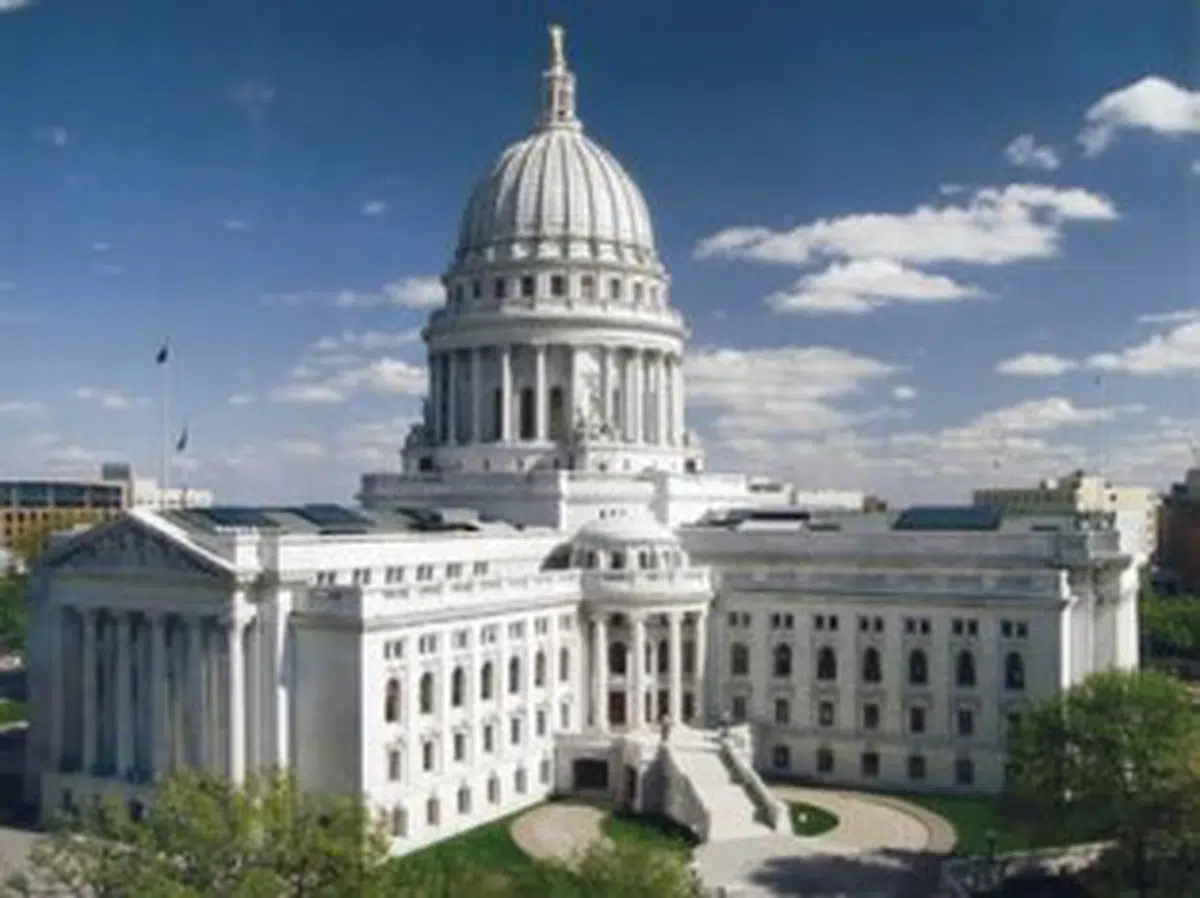
MADISON, WI (WTAQ-WLUK) – Gov. Tony Evers issued an executive order Monday calling the Legislature into special session to address police use of force in the wake of a shooting by Kenosha officers.
The shooting of 29-year-old Jacob Blake, a Black man, was caught on cellphone video that was then posted online. Seven shots can be heard, though it isn’t clear how many struck Blake or how many of the officers fired.
The officers have been placed on administrative leave, which is standard practice.
The special session Evers is seeking would address bills he proposed in June in the wake of the police custody death of George Floyd in Minneapolis, which sparked protests around the country. The Legislature has not acted on those bills yet.
“As we move forward, if there is an unwillingness to do this important work, conversations with legislative leaders break down, or there are talks of delays until the next legislative session, as governor, I am ready and willing to use my power to call on the Legislature into special session to act,” Evers wrote in a letter to lawmakers.
Other special sessions called by the Democratic Evers have failed to result in action by the Republican-led Legislature.
Republicans and the police union said Monday that the governor went too far, urging caution in making any judgments about what sparked the shooting.
Evers’ executive order calls for the special session to be held next Monday.
The bills, as described by the governor’s office:
- LRB 6273/LRB 6424:
- Establishes statewide use of force standards for all law enforcement agencies that includes that the primary duty of law enforcement is to preserve the life of all individuals; that deadly force is to be used only as the last resort; that officers should use skills and tactics that minimize the likelihood that force will become necessary; that, if officers must use physical force, it should be the least amount of force necessary to safely address the threat; and that law enforcement officers must take reasonable action to stop or prevent any unreasonable use of force by their colleagues;
- Prohibits discipline of a law enforcement officer for reporting a violation of a law enforcement agency’s use of force policy; and
- Requires the Law Enforcement Standards Board (LESB) to develop a model use of force policy for law enforcement agencies.
- LRB 6274/ LRB 6425:
- Requires each law enforcement officer to annually complete at least eight hours of training on use of force options and de-escalation techniques.
- LRB 6275/LRB 6426:
- Creates a $1,000,000 grant program, administered by the Department of Justice, to fund community organizations that are utilizing evidence-based outreach and violence interruption strategies to mediate conflicts, prevent retaliation and other potentially violent situations, and connect individuals to community supports.
- LRB 6276/LRB 6427:
- Requires law enforcement agencies to develop policies prohibiting the use of chokeholds.
- LRB 6277/LRB 6428:
- Requires each law enforcement agency to not only prepare a policy regarding the use of force by its law enforcement officers, but to make it available publicly online.
- Requires each law enforcement agency to not only prepare a policy regarding the use of force by its law enforcement officers, but to make it available publicly online.
- LRB 6281/LRB 6429:
- Creates a civil cause of action for unnecessarily summoning a law enforcement officer with intent to infringe upon a right of the person under the Wisconsin Constitution or the U.S. Constitution; unlawfully discriminate against the person; cause the person to feel harassed, humiliated, or embarrassed; cause the person to be expelled from a place in which the person is lawfully located; damage the person’s reputation or standing within the community; or damage the person’s financial, economic, consumer, or business prospects or interests.
- Creates a civil cause of action for unnecessarily summoning a law enforcement officer with intent to infringe upon a right of the person under the Wisconsin Constitution or the U.S. Constitution; unlawfully discriminate against the person; cause the person to feel harassed, humiliated, or embarrassed; cause the person to be expelled from a place in which the person is lawfully located; damage the person’s reputation or standing within the community; or damage the person’s financial, economic, consumer, or business prospects or interests.
- LRB 6283/LRB 6430:
- Requires that the Department of Justice publish an annual report on use of force incidents, including incidents where there was a shooting, where a firearm was discharged in the direction of a person (even if there was no injury), and where other serious bodily harm resulted from the incident; and
- Requires certain demographic information to be collected about each incident and reported annually by DOJ on its website.
- LRB 6289/LRB 6431:
- Prohibits no-knock search warrants.
- LRB 6292/LRB 6432:
- Makes certain changes to the responsibilities of the LESB, including requiring LESB to also regulate jail and juvenile detention officer training standards and regulate recruitment standards for the recruiting of new law enforcement, jail, and juvenile detention officers;
- Requires each law enforcement agency to maintain an employment file for each employee; and
- Requires each potential candidate for a position in an agency, jail, or facility that is or has been employed by a different agency, jail, or facility to authorize their previous employer to disclose his or her employment files to the hiring entity.





Comments